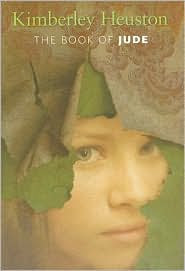
In the distant future, North America is now known as Panem, and is ruled by a tyranny from the Capitol. In retribution for an uprising many years ago, a contest is held every year called the Hunger Games, where each of twelve districts must send two of your young people to fight to the death in gladiator contests. This year, District 12 is represented by Katniss and Peeta. Peeta is a weak baker's son, but Katniss has struggled all of her life to support her family and has a suberb survival instinct. But will it keep her alive in the contest against the others? And what about Peeta, who she must also kill to stay alive (an idea which becomes more complicated as her feelings for him begin to develop)?
Not my usual thing, but a strangely compelling book. I had a great deal of trouble putting it down, which speaks highly for its value. The suspense level is high and Collins spins a very tight story. Perhaps not as much character development as I was hoping for, but there will be a sequel and that promises ample opportunity for taking this further. The book is getting a lot of hype, so it probably doesn't need another endorsement, but I'll give it anyway. If you want entertaining, hanging on your seat excitement, you can't do much better than this book.



























